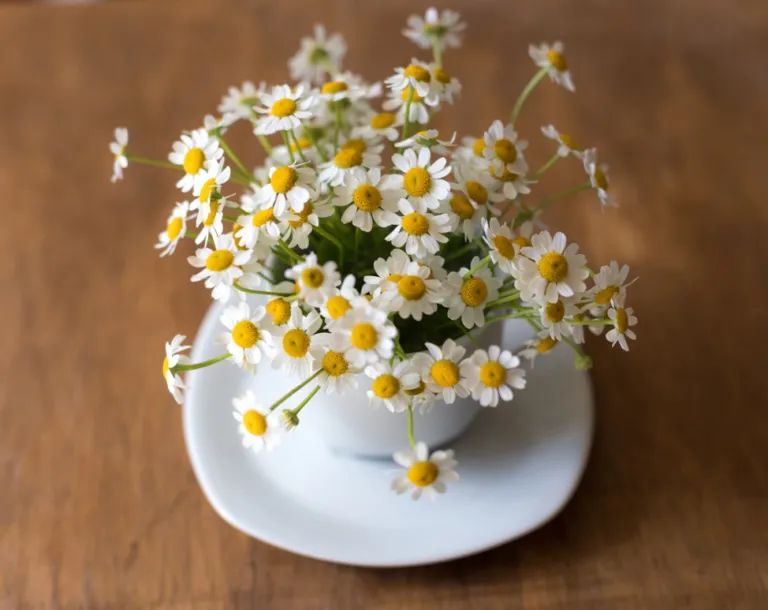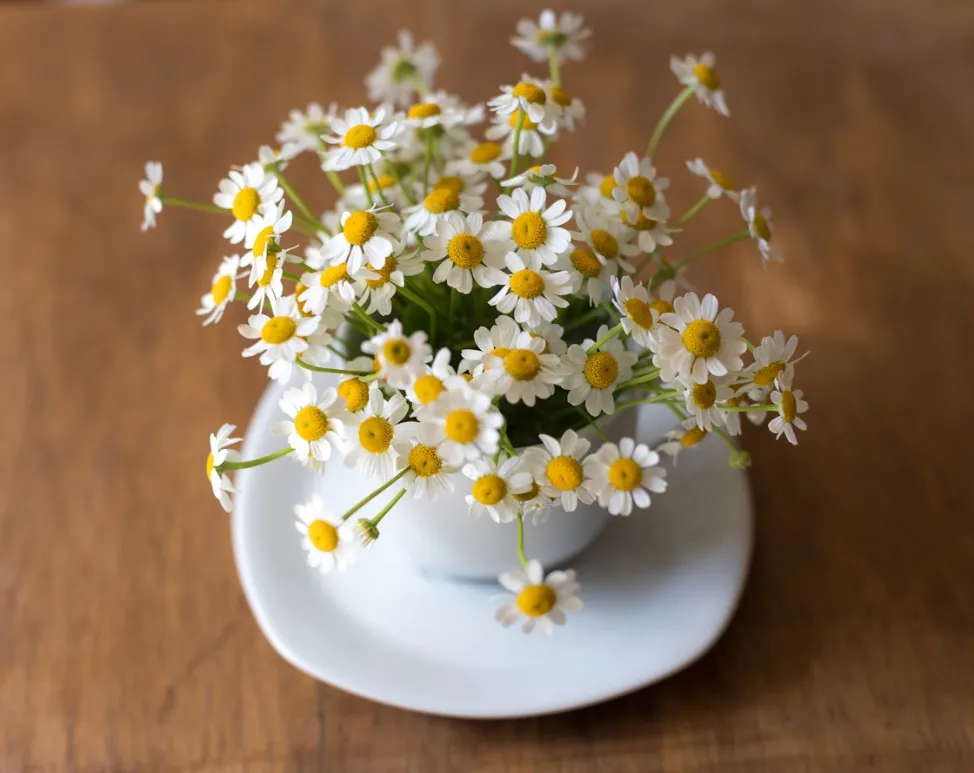Due to the negative effects of many medications on pregnancy, expectant mothers often look for homemade and natural remedies for various ailments. Among the most commonly used herbs is chamomile, which is especially helpful during the first weeks of pregnancy. But is chamomile tea safe during pregnancy?
Chamomile in pregnancy – health properties
Due to its numerous properties, chamomile is one of the herbs we turn to most often. It relieves gastrointestinal complaints and has an anti-inflammatory effect. It contains flavonoids, antioxidants that have a positive effect on health. Chamomile is also used for skin infections due to its antibacterial and soothing effect. In pregnancy, together with ginger, it can relieve troublesome symptoms such as nausea and vomiting, which occur especially in the first weeks of pregnancy.
Chamomile – is it safe during pregnancy?
As with most other herbs, the effects of chamomile on the course and development of pregnancy have not been fully scientifically studied. Therefore, there are no clear recommendations for the consumption of chamomile tea during pregnancy. For this reason, most gynecologists recommend using chamomile during pregnancy with caution and consideration. In all likelihood, a cup of the infusion now and then will not have any negative effects. However, it is always advisable to obtain herbs from a reliable source and free from impurities.
Effect of chamomile on pregnancy
Many women turn to chamomile to relieve their stomach discomfort during pregnancy. However, some studies and scientific reports indicate a risk of premature birth or miscarriage if excessive amounts of chamomile are consumed. It may also have a negative effect on the arterial channels of the fetus. However, these are isolated cases, so it is best to consult your gynecologist.
Other herbs in pregnancy
When using herbs during pregnancy, it is important to be aware of their possible effects on the development of the baby, as well as interactions with medications taken by the expectant mother. Pregnant women are discouraged, among other things, from self-medicating with herbs for conditions that complicate pregnancy. Most often, pregnant women turn to herbs to relieve symptoms such as nausea or flatulence, choosing mint and lemon balm in particular. These are herbs that have no negative effects on the baby’s development. However, there are known plants that pregnant women should avoid. These include wormwood, aloe vera and poppy.











